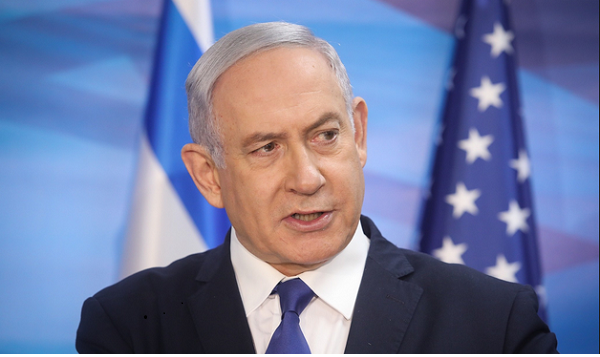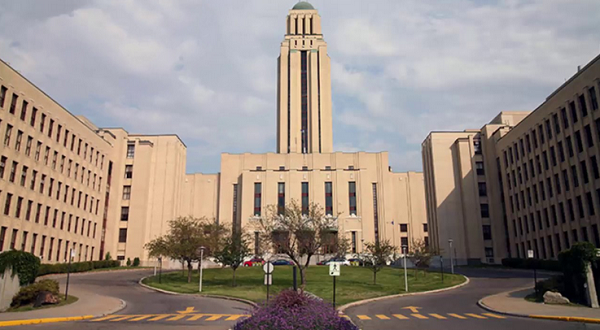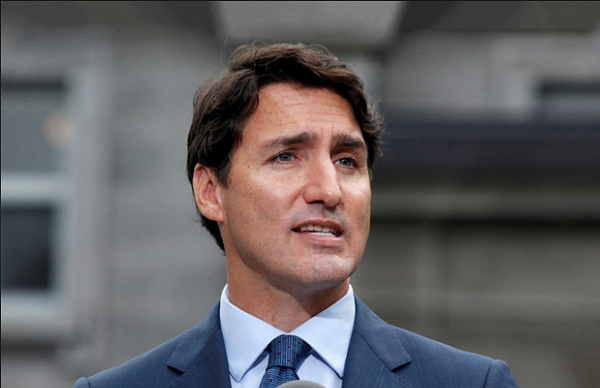Israeli PM threatens to fight any U.S. sanctions against his country’s military unit
The prospect of direct U.S. sanctions against an Israeli military unit has brought a furious response from the country’s top leaders with Prime Minister Benjamin Netanyahu pledging to fight what he called a “moral low.”
U.S. Secretary of State Antony Blinken signalled last week that he will take action “in the days ahead” to cut military aid from Israeli units accused of human-rights violations.
Sanctions are being prepared against Netzah Yehuda, an all-male battalion with many ultra-Orthodox members, Axios reported this weekend. Israeli media have called the battalion “an army of oppression in the West Bank.”
Mr. Netanyahu, in a post on X, said he has already spent weeks lobbying senior U.S. government figures not to impose sanctions on Israeli citizens.
“At a time when our soldiers are fighting the monsters of terror, the intention to impose a sanction on a unit in the IDF is the height of absurdity,” he wrote, referring to the Israel Defence Forces, the country’s military.
Benny Gantz, a member of the country’s war cabinet, called Netzah Yehuda “an inseparable part” of Israeli’s military, warning that putting sanctions on an individual battalion “sets a dangerous precedent and conveys the wrong message to our shared enemies during wartime.”
Two years ago, soldiers with Netzah Yehuda detained an elderly Palestinian-American man, Omar Abdalmajeed As’ad, at a checkpoint. He died after being handcuffed, gagged, blindfolded and made to lay on the ground shortly after 3 a.m. A military investigation described the incident as a “moral lapse”; two company and platoon commanders were dismissed.
The IDF said in a statement Sunday that it “is not aware” of sanctions against the battalion, saying it “works and will continue to work to investigate any unusual event in a practical manner and according to law.”
The U.S. can place sanctions on a military it financially supports under what’s known as the Leahy law, which prohibits funding a unit implicated in gross human-rights violations, unless a foreign government takes effective steps to bring those responsible to justice.
More than six months of Israel’s war in Gaza has been accompanied by a rise of deadly clashes in the West Bank and East Jerusalem, as well, prompting the U.S. and Europe to impose unprecedented sanctions against Israelis accused of being behind the violence. Canada, too, has pledged sanctions against settlers accused of violence.
Israel, however, has shown no sign of altering course in the West Bank, where clashes have left nearly 500 Palestinians dead since Oct. 7, the day Hamas militants killed 1,200 people. Israel’s war on Gaza has killed more than 34,000.
But any sanctions against an Israeli military unit are far more consequential than actions against settlers, warned Michael Oren, a former Israeli ambassador to the U.S.
“It’s a material blow to our security,” he said. “The ultimate danger is that Israelis will not want to go into combat units for fear that when they get out of the army and want to travel abroad, they will be arrested.”
Putting sanctions on Netzah Yehuda, in particular, could hurt Israel’s bid to extend military conscription to the ultra-Orthodox community, he said.
It’s also likely, he believes, to generate additional support for the far right, which most supports settlements.
“All they will do is strengthen the very people that they hope to weaken,” Mr. Oren said. “You will see Israel will turn around and declare more settlements.”
But U.S. sanctions of Netzah Yehuda would amount to saying “that we no longer accept your whitewashes of criminal investigations,” said Michael Omer-Man, director of Israel-Palestine research for DAWN, a non-profit that advocates rule of law in the Middle East.
“The way to avoid that is clear as day. It’s to create actual accountability of security forces for human-rights violations against Palestinians.”
Canada, the U.S. and other Western countries consider Israel’s settlements illegal under international law. But they are expanding at a rapid pace.
Last year, Israeli settlers established a record 26 new outposts, while the government worked to legalize 15 additional settlements, according to statistics gathered by Peace Now, a research and advocacy group.
More than 500,000 Israelis now live in West Bank settlements, their population growing by nearly 3 per cent last year. Just last week, Israel released a tender for more than 1,000 new units in East Jerusalem
The new sanctions have been imposed at a time when Mr. Netanyahu’s rule depends upon maintaining a coalition that includes far-right figures who see settlements as a religious imperative.
If Mr. Netanyahu takes steps to counter them, he risks losing his coalition, and with that his place as prime minister, said Chuck Freilich, a former Israeli deputy national security adviser who is a specialist in the country’s relations with the U.S.
At the same time, international pressure is mounting.
Mr. Freilich likened the situation to a volcano. “The lava has been bubbling and bubbling – and at some point it’s going to erupt. And we may not be very far from that eruption,” he said.
What that looks like may already be coming into view. In the U.S., some congressional Democrats have discussed placing conditions on additional aid to Israel, tied to protections for civilian lives. No other country has received more U.S. foreign aid, which has added up to nearly US$300-billion since 1946, according to figures tabulated by the Council on Foreign Relations, using 2022 dollars.
Any step to question further aid to Israel would mark a major departure from long-standing U.S. policy.
“More people are saying, ‘condition it,’” said Mr. Freilich.
“The more that happens, the more pressure there is on Israel. That’s something that has never existed.”
This article was first reported by The Globe and Mail












